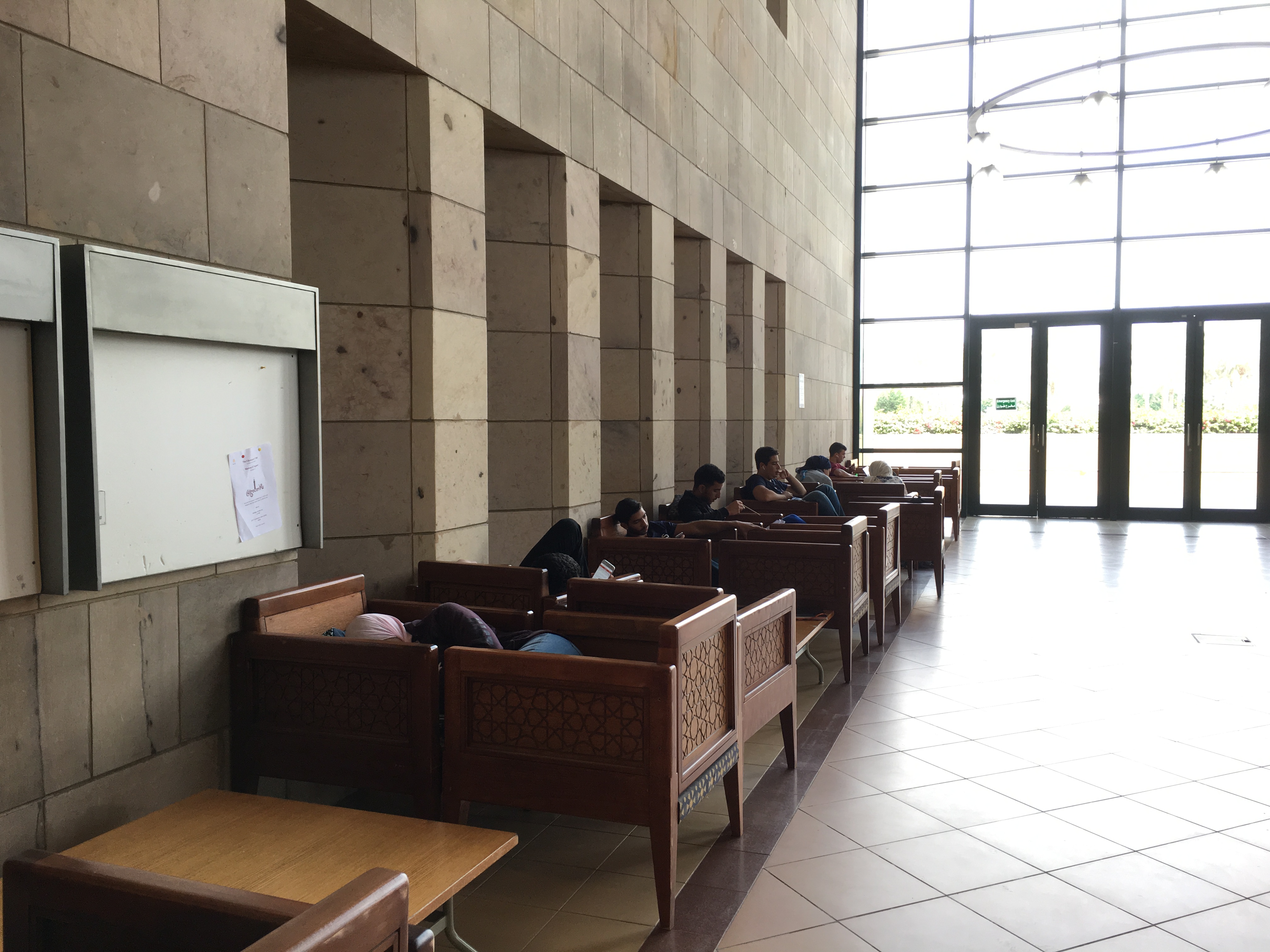Zzzzzzzz …. When Students Crave a Long Snooze
Students on campus are continuing to find spots in the library, gardens, plaza and even during class time, to sneak in a few minutes of sleep before their next engagement.
Their tiresome state has led to lengthy queues in front of coffee providers on campus and slow paced, foot dragging steps to and from their classes.
“Adults should get from six to eight hours of sleep every night,” said Associate Professor of Psychology and Director of Psychological Counseling Services and Training Center Jaime Mendoza.
By mid-semester, student sleeping standards have already started to deteriorate under the burden of overwhelming tasks and deadlines.
Too often, professors asking questions are usually met with yawns, drooping eyelids and blank stares.
“The reality is that many of us get only five to seven hours of sleep,” said Mendoza.
The lack of sleep may help students meet all their deadlines but the consequences could last a lifetime.
“We can all perform well with minimal sleep for a short time period. However, the more we go without sleeping the slower it is for us to process information,” Mendoza added.
“In fact, our performance declines. If it gets too bad, then we can even hallucinate.”
One of the best methods for students to deal with their unstable sleeping schedules is to take quick 20 to 40 minute naps throughout the day to avoid the physical and mental drawbacks of not getting enough sleep.
“If you noticed, many people get sick right after finals and some after midterms because the body is crashing and doesn’t have the energy to fight any colds or other illnesses. This gets worse with stress,” added Mendoza.
Students are not getting enough sleep because of their overflowing to-do lists, convinced that this is what it takes to be a university student.
“I leave the university at around midnight and have an 8:30 [class] the next morning, with assignments to complete during the hours in between,” complained Architectural Engineering junior Leen Ghajar.
Taking caffeine as their drug of choice, students are blind to its side effects. From digestive issues, high blood pressure to anxiety and insomnia, Mendoza emphasized that the impacts of a regular intake of caffeine are fairly harmful.
“They give a quick boost. However, too many caffeinated drinks like Red Bull or other drinks are horrible for your system. They may give you a quick jolt, but the consequences are long term,” added Mendoza.
Integrated Marketing Communication and Graphic Design Junior, Rama Yasser, described her sleeping schedule saying, “with every semester I sleep less and less and my reliance on caffeinated drinks increases exponentially.”
She said that gets an average of three hours of sleep and sometimes even less.
“It is the price that comes with keeping up with five courses and all their demands,” she added.
Mendoza also explained that students need to understand their schedule and then develop a sleeping routine accordingly.
“If they keep pushing their bodies for over two weeks they will begin to decompensate,” added Mendoza.


